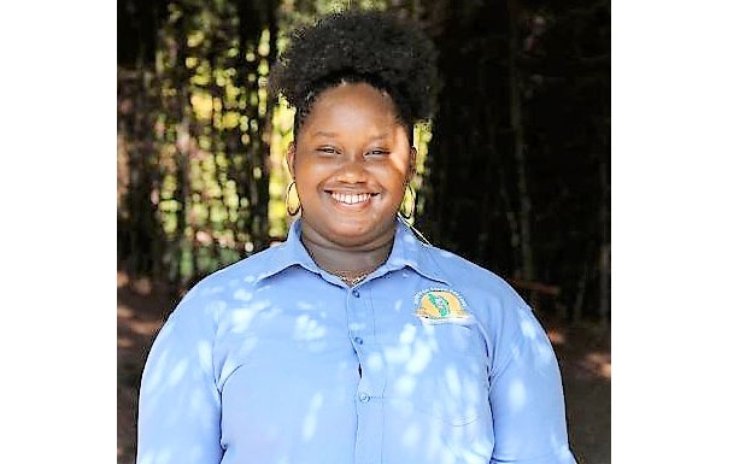Dr. Kimone Joseph: Our dreams are no longer in Kwéyòl
By Ashante Paul, Dominica State College, Mass Communication Internship Programme

Is the creole language endangered?
That question came up over and over during the first-ever Creole Symposium held on Wednesday, 4 February at The University of the West Indies Open Campus on Valley Road, Roseau.
What was the answer to that question? Yes, Kwéyòl is indeed endangered.
For instance, Kwéyòl expert Gregory Rabess presented on: "Kwéyòl Endangered? Language Preservation in Practice". Rabess began by stating that this is a reality check for Kwéyòl and there are many things we should do to preserve the language.
He said even if Kwéyòl isn't generally endangered everywhere, it is in Dominica. People are abandoning Kwéyòl for economic and social reasons and it is used less in everyday conversations. He added that there are still favourable factors for Kwéyòl development in Dominica because of the positive attitude of policymakers and media exposure. Rabess said Kwéyòl is a culture and a heritage that preserves our history in oral traditions. It is a key part of our identity.
The symposium, initiated by Creole Heartbeat magazine and Leroy "Wadix" Charles, was held under the theme: " Language and Culture Preservation: The Impact of Creole on Dominica's Education System".
Millia Joseph-Dennis chaired the event and Permanent Secretary in the Ministry of Education, Chandler Hyacinth, delivered welcome remarks.
Chief Cultural Officer Raymond Lawrence, president of the Komité Pou Etid Kwéyòl, and Octavia Alfred, Minister of Education, gave further remarks. The moderator, Delia Cuffy-Weekes, offered a brief introduction that began the discussion. Magalie Celestine and Charlene White-Christian represented the Ministry of Education and presented on developing a Kwéyòl curriculum for Dominican schools.
Announced at the symposium was a programme for primary schools named "A Pause for the Creole Cause"; it is scheduled to begin in the third term in 2021. The programme aims at developing Creole as Dominica's second language.
Ashma McDougall, president of the National Youth Council, spoke on behalf of the youth and asked: "What is in it for us?".
McDougall said that although these programmes are being executed for the youth, "we are not involving the youth in decision-making".
She added that if we want to persuade the youth to the value of culture, we must allow them to take a more active part in discussions and the search for solutions to preserve our culture.
The UWI Open Campus representatives, Dr. Barry Casimir and Dr. Kimone Joseph spoke on "Kwéyòl in Tertiary Education: the UWI Experience".
Dr. Joseph began by quoting Dr. Didacus Jules, the current director of the Organization of the Eastern Caribbean States (OECS). Dr. Joseph, quoting Dr. Jules, said: "More and more we become more cosmopolitan in our outlook, in our taste, in our aspirations. Our dreams are no longer in Kwéyòl ".
She added that The UWI is working to preserve the Creole language.
Dr. Casimir further explained the steps taken by the institution in the presentation of the course: "Fundamentals of Comprehensive Kwéyòl" and the certificate in "Intermediate Conversational Kwéyòl". He said the outcomes of the course have exceeded expectations and that "our dreams can indeed still be in Kwéyòl".
The symposium ended with an open discussion on the topic.




